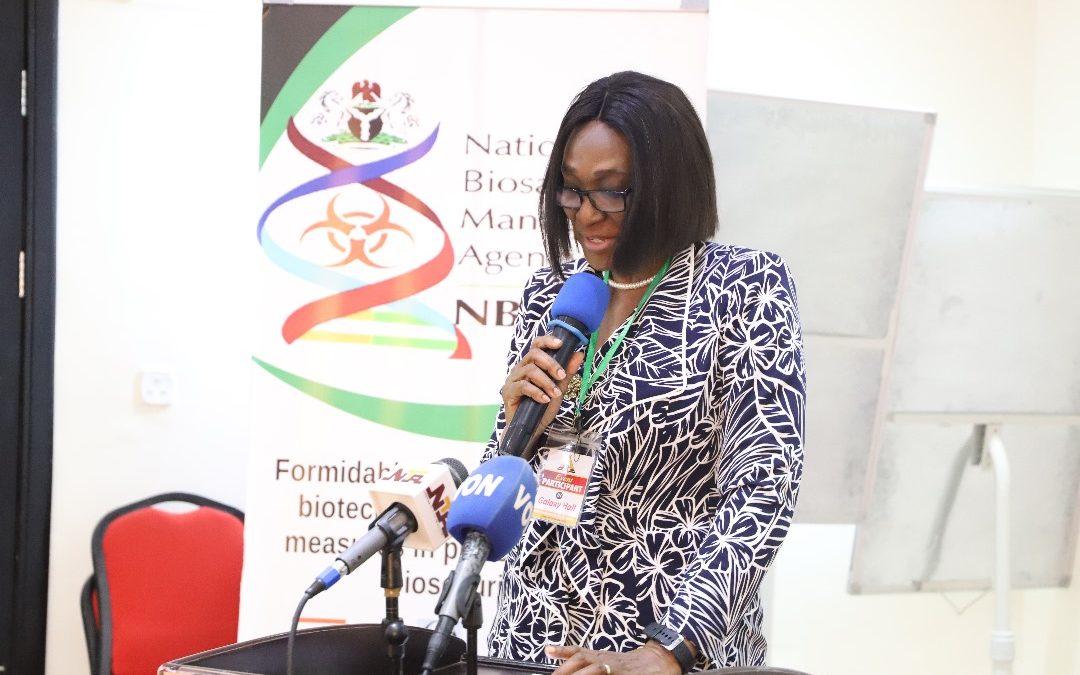The Director General of the Nigeria Biotechnology Management Agency (NBMA), Agnes Asagbra, has pushed back against the National Agency for Food and Drug Administration and Control (NAFDAC) Director General, Mojisola Adeyeye, who recently criticized the safety of genetically modified foods in Nigeria.
During a June 29 interview on Arise News Television, Adeyeye argued that GMO foods in Nigeria are unsafe due to insufficient research and data. “In terms of GMOs, we do not think it is safe. We don’t think it is safe for our consumption. First, a lot of research has not been done in terms of the safety of GMO products and the genetics of the seeds have been modified. Until we get very convincing data to show the safety for human consumption,” she said. Adeyeye added that while GMOs could be used for non-food crops like timber and rubber plantations, there is no evidence from NAFDAC confirming their safety for human consumption.
In response, Asagbra expressed concern that Adeyeye’s remarks undermine the mandate and functions of the NBMA. In a letter dated July 2, Asagbra stated that such comments could discredit the hard work and integrity of the NBMA and its stakeholders, including NAFDAC.
“The views you expressed appear to discredit the hard work and integrity of the National Biosafety Management Agency (NBMA) and its several renowned stakeholders and experts for which your Agency is one,” Asagbra wrote.
She emphasized that the NBMA is a legally constituted agency responsible for regulating the approval and safe use of all genetically modified organisms (GMOs) in Nigeria. The agency provides a regulatory framework, institutional and administrative mechanisms to ensure the safe application of modern biotechnology and emerging technologies in the country, aiming to prevent any adverse effects on human health, animals, plants, and the environment.
“It is completely misleading for the Director General of NAFDAC to categorically state on National Television that GMOs are not safe, having admitted that her Agency has not carried out research, does not have the competency and of course, does not have the mandate to carry out any study to determine GMOs’ safety,” Asagbra noted.
Asagbra highlighted the importance of inter-agency collaboration for effective biosafety management in Nigeria and stressed the need for maintaining partnerships based on mutual respect and shared goals.
She also pointed out that Adeyeye’s comments have significantly impacted public perception of GMO technology and the credibility of the NBMA and the Federal Government’s stance on biotechnology.
“It is indisputable that the public’s perception of the Agency and that of the Federal government of Nigeria’s position has been severely discredited by this falsehood from a purported sibling agency, intentionally or unintentionally casting aspersion on its credibility and effectiveness,” she said.
Asagbra urged Adeyeye to retract her statements and align with the Federal Government’s position on GMO regulation, emphasizing the need to address the misconceptions caused by the NAFDAC boss’s remarks.
The debate over GMO adoption in Nigeria has been contentious, with pro-GMO institutions like the NBMA arguing that GMO crops can address food insecurity, while critics raise concerns about health, environmental impacts, and food sovereignty.
The Acting Director General of the National Agricultural Seed Council (NASC), Khalid Ishiak, recently confirmed that 40 metric tons of Tela maize, a GMO crop, are available for Nigerian farmers. Ishiak clarified that seeds from GM materials bred in Nigeria can be replanted, although it is generally advised to purchase new seeds for optimal yield.
“Seeds from GM materials that have been bred in Nigeria can be replanted. However, as with conventional seeds, we have always advised farmers to always buy new seeds for optimal yield gain. Planting the offspring or farmer’s saved seeds from harvested materials may lead to yield loss by about 10-15 percent and up to 25 percent in some instances,” he explained.




